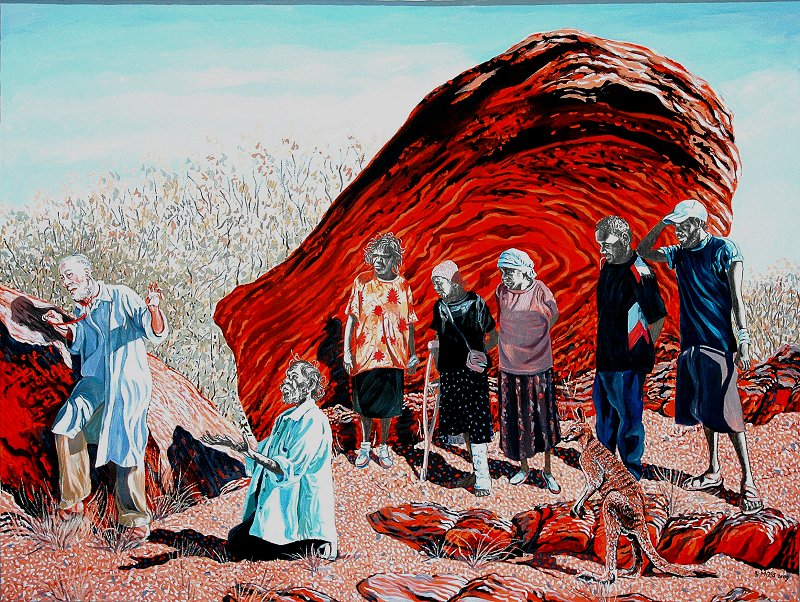A young woman from Alice Springs wrote a letter to her father recently. In real life the young woman is a songwriter, singer and filmmaker. Her husband is a human rights lawyer. Recently the couple has been spending some time among the recent arrivals from Syria in Lesvos. You need to have a picture of the writer: imagine an underfed, undersized jockey. Imagine that jockey is entered in a race in which she is obliged to carry a second jockey on her back: Ronja – that’s her name – would be that second jockey. As you will see, Ronja has single-handedly flung English spelling into a bizar new age. She writes:
Dadda,
Mine is a strange life right now. I am currently in the Mayer of Lesvos’ office trying to get atms installed in the registration camp Moria (one of the worst places in the world currently). A 5 month baby died there 2 days ago from freezing in the snow, we have up to 5,000 people there most nights sleeping in the snow and rain, not enough food and there are fights and riots daily. The stories of this continue. Rape, gangs, gypsies scamming the etc. it’s a mess.
I wake every day and deal with the 70+ volunteers I am responsible for. The admin staff of the foundation all went on holiday 2 weeks ago, so I suddenly became the personal assistant of the woman in charge. Melinda from Starfish Foundation. She was in the Financial Times magazine last year as the number one woman (ahead of Michelle Obama).
A part of this means deciding the vision of the foundation, as well as meeting with the heads of the 100, or so NGO’s (unhcr etc) on the island. I love meeting these people and going to meetings where information is shared. I may never get to work like this again, so am relishing the moments.
She trusts me now and so I work also as a personal sounding board. She wants me to move here and work under her, but we’ll see about that.


 I came to clothe and feed people. Instead, I write legal documents, structure how we can implement the best care for refugees and am trying to get funding for special projects: such as information distribution and programs for unaccompanied minors.
I came to clothe and feed people. Instead, I write legal documents, structure how we can implement the best care for refugees and am trying to get funding for special projects: such as information distribution and programs for unaccompanied minors.
I have also been writing music for the foundation for fundraising. I’ll send you the videos when they are posted. That’s been great fun! There are real popstars and so many famous people on this island. Film stars, film makers, musicians and artists. I played my ukulele to Ai Weiwei last weekend and then made a small speech. That was bizar! I think he liked it and he thanked us for our work.
Still, I go a bit crazy not having any time to myself and with Shaan. Shaan is in full swing as camp coordinator on behalf of Starfish- you know what he is like.
The only reason I can write now is because I am waiting in the Mayer’s office.
I am very very interested in what is happening with the unaccompanied minors here in Europe. I met a family of about 50 members from Afghanistan that changed my life 2 weeks ago. Two girls 14 and 10 travelling with a brother who was 17. In the same family a boy 16 travelling mainly with a cousin in this 20s. These three children are legally unaccompanied, so would have been separated, detained and kept in Athens until they each reached the age of 18. They were with family who loved and cared for them, but this was not recognised. They were the most beautiful people and I become very close to the 16yr old boy Mujtaba, who now talks to me every few days from Germany. There is more to this story.
Furthermore, I hear from people who have worked in this area that the children are not properly supervised and are not given proper resources. Most of these children end up running away and getting lost in Europe trying to find their family.
There is also child trafficking happening. We have seen this ourselves.
I want to come back in July and see if I can get into the child compound at Moria camp. One of the good things about meeting all the big wigs is that I have met people who can get me into these areas. The police are in control of the compound, so to be let in is an absolute privilege. If I can get in I want to see if I can come back and run art and music workshops next year. Anyway, we’ll see. It’s all just thought currently, but Melinda knows this is my passion and will help me get permission and money I believe. Right now, my heart and imagination are captured… Also, Shaan will most likely be employed by the foundation in the next few months. AND this crisis is not going anywhere, so neither are our potential roles. Who knows, we may end up living in Greece for a year or two. How surreal.
I better go. The Mayer just arrived. Love you xoxoxoxoxox
